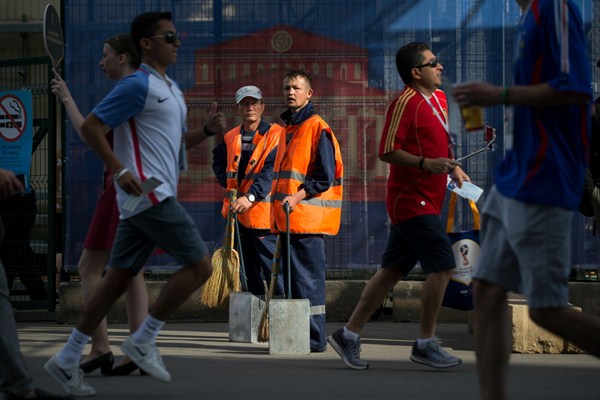Editor’s Note: This article is part of a series on immigration policy around the world.
Like many other advanced economies, Russia faces serious demographic challenges in the coming decades. According to government projections, the population is expected to shrink by 2.5 million people by 2035, and the active working-age population will likely decrease by 3.1 million people. Russian federal and state authorities recognize the need to hold these trends in check by keeping the country’s doors open, but immigrants, particularly migrant workers, often have trouble accessing social services and must navigate a complex patchwork of rules and regulations in order to stay in Russia. In an interview with WPR, Vladimir Mukomel, a migration expert at the Russian Academy of Sciences in Moscow, discusses the “dizzying reversals” in Russia’s immigration policy and what officials can do to make the country friendlier to immigrants.
World Politics Review: How did immigration policies change in Russia following the end of the Cold War and the break-up of the Soviet Union?

